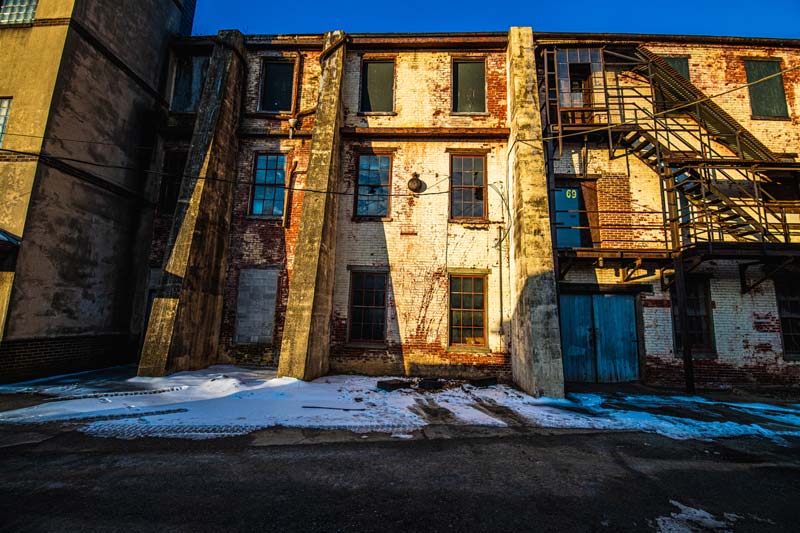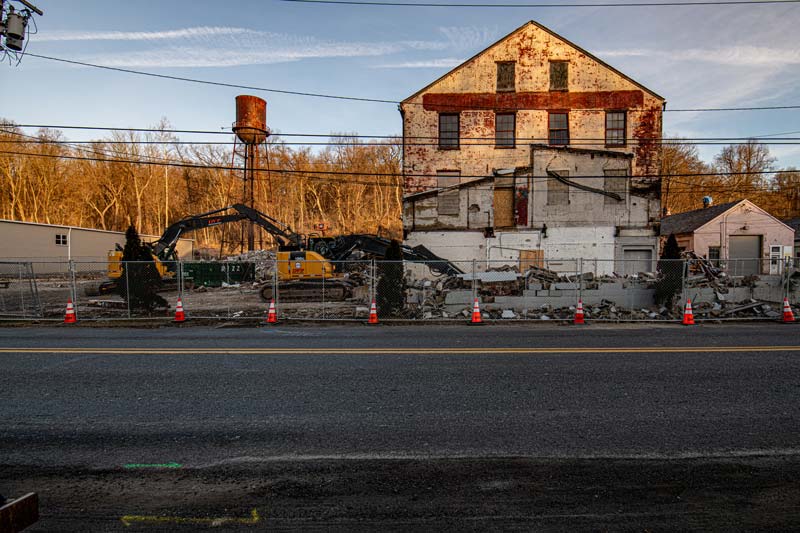$1 million grant will support renovation of Rinek Cordage Co. complex
By Dave Block ’93
Lafayette has been awarded $1 million in state funding to renovate the Rinek Cordage Company complex at 991 Bushkill Drive.
Plans for the complex, which was built in 1870, include space for environmental and conservation research and hands-on projects, a civil engineering “maker space,” and multi-use meeting spaces; a student-organized EMS station; and the College’s composting facility. Its four buildings total 58,000 square feet.
The College’s investment in the project will at least match the grant. The proposal for the Pennsylvania Redevelopment Assistance Capital Program grant received support from Gov. Tom Wolf, State Sen. Lisa Boscola, and State Rep. Bob Freeman.
The College plans for the public-private partnership to result in programs that engage and benefit the community, such as student collaborations with local businesses.
The Rinek project and other improvements at neighboring Hummel Lumber and Easton Iron and Metal build on previous city and College investments in the Bushkill Corridor area for the Williams Arts Campus, Karl Stirner Arts Trail, and Simon Silk Mill—Easton’s most ambitious redevelopment initiative, launched with a $9 million RACP grant in 2004 that was matched by the College. The Bushkill Corridor is considered a key component of Easton’s revitalization efforts.
The Rinek complex also is linked by new trails and sidewalks to Lafayette’s main campus, the College Hill and Downtown business and residential districts, and Easton’s West Ward neighborhood. Lafayette recently conducted site work and installed curbing and sidewalks.
 Founded by Jacob Rinek in 1840, Rinek Cordage Company remained in the family until the company was sold in 1970. Most of the rope was used in coal mines in the region. It also was employed to pull towboats on the Lehigh and Delaware canals, build bridges in New York City, and construct the Panama Canal.
Founded by Jacob Rinek in 1840, Rinek Cordage Company remained in the family until the company was sold in 1970. Most of the rope was used in coal mines in the region. It also was employed to pull towboats on the Lehigh and Delaware canals, build bridges in New York City, and construct the Panama Canal.
The Rineks, who lived in a mansion on Paxinosa Avenue on College Hill, were close friends of Thomas Edison, who visited them frequently, and together they were responsible for installing electricity and trolleys in the city. Norvin Rinek developed a pioneering airplane in 1909.
